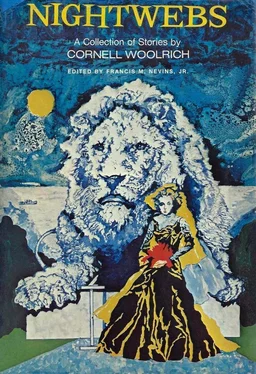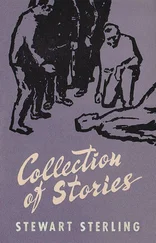Smitty shifted his hat from northeast to southwest and started reluctantly toward the great outdoors once more. “Anything screwy like this that comes up, I’m always It,” he was heard to mutter rebelliously. “Nice job, shooing a dancing contest. I’ll probably get bombarded with powder-puffs—”
The chief reached suddenly for the heavy brass inkwell on his desk, whether to sign some report or to let Smitty have it, Smitty didn’t wait to find out. He ducked hurriedly out the door.
“Ah, me,” sighed the chief profoundly, “what a bunch of crumbs. Why didn’t I listen to me old man and join the fire department instead!”
Young Mr. Smith, muttering bad language all the way, had himself driven over to the unused armory where the peculiar enterprise was taking place. “Sixty cents,” said the taxi driver.
Smitty took out a little pocket account-book and wrote down Taxi-fare — $1.20. “Send me out after nothing at four in the morning, will he!” he commented. After which he felt a lot better.
There was a box-office outside the entrance but now it was dark and untenanted. Smitty pushed through the unlocked doors and found a combination porter and doorman, a gentleman of color, seated on the inside, who gave him a stub of pink pasteboard in exchange for fifty-five cents, then promptly took the stub back again and tore it in half. “Boy,” he remarked affably, “you is either up pow’ful early or up awful late.”
“I just is plain up,” remarked Smitty, and looked around him.
It was an hour before daylight and there were a dozen people left in the armory, which was built to hold two thousand. Six of them were dancing, but you wouldn’t have known it by looking at them. It had been going on nine days. There was no one watching them any more. The last of the paid admissions had gone home hours ago, even the drunks and the Park Avenue stay-outs. All the big snow-white arc lights hanging from the rafters had been put out, except one in the middle, to save expenses. Pasternack wasn’t in this for his health. The one remaining light, spitting and sizzling way up overhead, and sending down violet and white rays that you could see with the naked eye, made everything look ghostly, unreal. A phonograph fitted with an amplifier was grinding away at one end of the big hall, tearing a dance-tune to pieces, giving it the beating of its life. Each time the needle got to the end of the record it was swept back to the beginning by a sort of stencil fitted over the turntable.
Six scarecrows, three men and three girls, clung ludicrously together in pairs out in the middle of the floor. They were not dancing and they were not walking, they were tottering by now, barely moving enough to keep from standing still. Each of the men bore a number on his back. 3, 8, and 14 the numbers were. They were the “lucky” couples who had outlasted all the others, the scores who had started with them at the bang of a gun a week and two days ago. There wasn’t even a coat or vest left among the three men — or a necktie. Two of them had replaced their shoes with carpet-slippers to ease their aching feet. The third had on a pair of canvas sneakers.
One of the girls had a wet handkerchief plastered across her forehead. Another had changed into a chorus-girl’s practice outfit — shorts and a blouse. The third was a slip of a thing, a mere child, her head hanging limply down over her partner’s shoulder, her eyes glazed with exhaustion.
Smitty watched her for a moment. There wasn’t a curve in her whole body. If there was anyone here under age, it was she. She must be Toodles McGuire, killing herself for a plated loving-cup, a line in the newspapers, a contract to dance in some cheap honky-tonk, and a thousand dollars that she wasn’t going to get anyway — according to the chief. He was probably right, reflected Smitty. There wasn’t a thousand dollars in the whole set-up, much less three prizes on a sliding scale. Pasternack would probably pocket whatever profits there were and blow, letting the fame-struck suckers whistle. Corner-lizards and dance-hall belles like these couldn’t even scrape together enough to bring suit. Now was as good a time as any to stop the lousy racket.
Smitty sauntered over to the bleachers where four of the remaining six the armory housed just then were seated and sprawled in various attitudes. He looked them over. One was an aged crone who acted as matron to the female participants during the brief five-minute rest-periods that came every half-hour. She had come out of her retirement for the time being, a towel of dubious cleanliness slung over her arm, and was absorbed in the working-out of a crossword puzzle, mumbling to herself all the while. She had climbed halfway up the reviewing stand to secure privacy for her occupation.
Two or three rows below her lounged a greasy-looking counterman from some one-arm lunchroom, guarding a tray that held a covered tin pail of steaming coffee and a stack of wax-paper cups. One of the rest periods was evidently approaching and he was ready to cash in on it.
The third spectator was a girl in a dance dress, her face twisted with pain. Judging by her unkempt appearance and the scornful bitter look in her eyes as she watched the remaining dancers, she had only just recently disqualified herself. She had one stockingless foot up before her and was rubbing the swollen instep with alcohol and cursing softly under her breath.
The fourth and last of the onlookers (the fifth being the darky at the door) was too busy with his arithmetic even to look up when Smitty parked before him. He was in his shirt-sleeves and wore blue elastic armbands and a green celluloid eye-shade. A soggy-looking stogie protruded from his mouth. A watch, a megaphone, a whistle, and a blank-cartridge pistol lay beside him on the bench. He appeared to be computing the day’s receipts in a pocket notebook, making them up out of his head as he went along. “Get out of my light,” he remarked ungraciously as Smitty’s shadow fell athwart him.
“You Pasternack?” Smitty wanted to know, not moving an inch. “Naw, he’s in his office taking a nap.”
“Well, get him out here, I’ve got news for him.”
“He don’t wanna hear it,” said the pleasant party on the bench. Smitty turned over his lapel, then let it curl back again. “Oh, the lor,” commented the auditor, and two tens left the day’s receipts and were left high and dry in Smitty’s right hand. “Buy yourself a drop of schnapps,” he said without even looking up. “Stop in and ask for me tomorrow when there’s more in the kitty—”
Smitty plucked the nearest armband, stretched it out until it would have gone around a piano, then let it snap back again. The business manager let out a yip. Smitty’s palm with the two sawbucks came up flat against his face, clamped itself there by the chin and bridge of the nose, and executed a rotary motion, grinding them in. “Wrong guy,” he said and followed the financial wizard into the sanctum where Pasternack lay in repose, mouth fixed to catch flies.
“Joe,” said the humbled sidekick, spitting out pieces of ten-dollar-bill, “the lor.”
Pasternack got vertical as though he worked by a spring. “Where’s your warrant?” he said before his eyes were even open. “Quick, get me my mouth on the phone, Moe!”
“You go out there and blow your whistle,” said Smitty, “and call the bally off — or do I have to throw this place out in the street?” He turned suddenly, tripped over something unseen, and went staggering halfway across the room. The telephone went flying out of Moe’s hand at one end and the sound-box came ripping off the baseboard of the wall at the other. “Tch, tch, excuse it please,” apologized Smitty insincerely. “Just when you needed it most, too!”
Читать дальше












